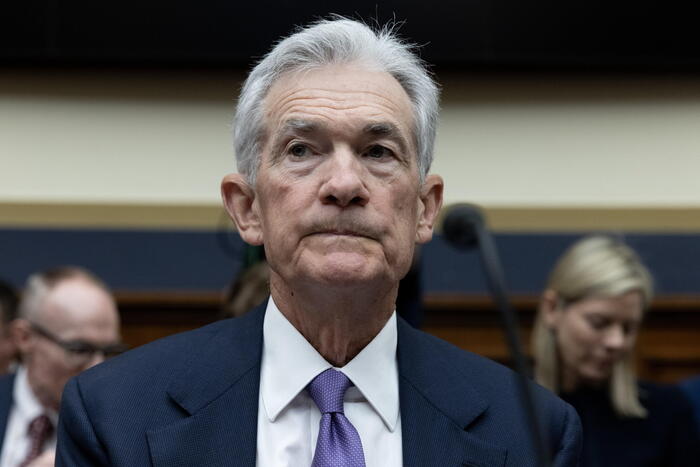Enlarge image
Photo: Florian Gaertner / Photothek / Getty Images
Germany, wrote the British author John Kampfner, has managed to establish "a new paradigm of stability."
In a world that is otherwise very much out of joint, we are a haven of calculability: an "adult country", "emotionally mature and solid", sensible, cautious and generally exemplary.
Wow!
Kampfner's book "Why the Germans do it better", published a year ago, is an eulogy for our nation. Sure, some things look nicer from a distance than up close. And compared to polarized Brexit Britain, many of the attributions are all too flattering. But many German citizens would probably subscribe to the fundamental finding of internal stability. The state institutions enjoy the trust of a large majority of the population, not a matter of course in a European comparison, as surveys show. The big question, however, is whether it will stay that way. Doubts are in order.
In the past decade and a half, the major economic upheavals have always come from outside. The 2008 financial crisis had its origins in the USA, the euro crisis in southern Europe; the Brexit drama and the protectionist Trump presidency took place in the old Anglo-Saxon democracies; the corona pandemic spread across the world from China. In all of these cases, Germany faced the effects. On the inside, however, there was relative calm, precisely the "paradigm of stability" highly praised by Kampfner.
But now the relations seem to be shifting. A current analysis by our DoCMA research center in Dortmund shows a changed pattern: The uncertainty affecting the German economy from outside has recently decreased significantly. A new phase of cooperation between the Western states seems to be approaching. There are surprising breakthroughs in central projects such as the introduction of an international minimum taxation for corporations. (Also watch out for the G20 ministerial meeting from Friday).
Instead, the domestic political situation is now becoming increasingly imponderable.
That is new.
There are some indications that the coming federal elections will mark a turning point.
Whatever the outcome: After that, a new party constellation will be at the helm with a new figure at the helm.
The political agenda is also set to shift significantly in the foreseeable future.
Germany is sailing towards uncharted waters.
You say, you want a revolution ...
So far, radical changes in political course have been unknown in Germany.
New governments have always sought continuity.
Rotgrün under Chancellor Gerhard Schröder by no means introduced eco-socialism, but rather dared a limited reform program with the Hartz Laws, which many consider neoliberal to this day.
In Angela Merkel's long reign, major economic and social policy decisions were completely lacking;
the most surprising turnaround was the accelerated nuclear phase-out after the Fukushima reactor disaster.
There were no revolutions from above.
An "adult country" (Kampfner) felt its way cautiously.
Social debates were also so calm during these years that they hardly ever seemed unsettling, as our empirical findings show.
However, the excitation level has risen measurably since 2015.
The bitter disputes over the influx of refugees in 2015/16 and the rise of populist movements have left their mark.
The pandemic and the heated dispute over appropriate countermeasures have caused economic uncertainty to a degree that was not previously visible in our data series.
"Radical Uncertainty"
In the last few years, uncertainty has become a key economic term. Economists use it to describe everything that eludes a halfway reliable statistically reliable forecast. The words "uncertain" or "uncertainty" appear 85 times in the latest economic outlook from the OECD. This is mentioned 92 times in the last annual report of the German Advisory Council on the assessment of macroeconomic development. We are confronted with "radical uncertainty" everywhere, write the former Bank of England boss Mervyn King and his co-author John Kay in their book of the same name. The world is too complex and too much in motion to be calculable.
Uncertainty prevents companies from investing and private citizens from consuming.
In a survey by the European Investment Bank (EIB) that asked companies to indicate what prevents them from investing, “uncertainty about the future” was one of the most frequently cited reasons.
78 percent of the German companies surveyed said towards the end of the Corona year 2020 that they were reluctant to spend money because the future prospects were too diffuse.
There are now various indicators that economists use to measure uncertainty.
The most popular is an index that US scientists working with Stanford economist Nick Bloom determine for various countries.
These early warning systems are currently showing a normalization: Uncertainty is declining - the upswing is picking up speed.
That is the good news.
However, the economic impact also depends on the direction from which the uncertainty comes (the DoCMA indicator measures such shifts). The election of Trump, for example, and the political media theater that he staged every day caught our attention for four unbearable years and caused sharp increases in the indicators of uncertainty. But no immediate economic effects could be determined at first. It was only when Trump instigated global trade conflicts that this became a burdening factor for German industry. Domestic insecurity tends to have more direct effects. That is the bad news: if the moment of domestic political uncertainty increases, it can for the German economy,that has been operating in a reliable home environment for a long time can have negative consequences.
Reliable governance is becoming more difficult
So as not to be misunderstood: It's not about mourning Angela Merkel.
Discouraged and lacking in vision, as she ruled, especially in her last legislative period, it is high time she said goodbye.
It is also not a question of certain party-political preferences, but solely of the predictability of the future political course.
There are three main arguments against this:
The polls for the federal election in September are so tight that various coalitions appear possible. According to the latest surveys by the Wahlen research group, black-green, a traffic light, green-green-red-red and black-red are only a few percentage points apart. The respective political agenda would, however, differ considerably. This is exactly the kind of situation that creates political uncertainty. Should none of these constellations achieve a majority, a Jamaica coalition would remain as a fallback position. Whether such a Union-Greens-FDP alliance could effectively govern at the federal level is, however, an open question.
Public debates are driven by spiraling noise in social media, including polarizing echo chamber effects. In stressful societal situations, they act as an intensifier of insecurity, as the refugee crisis and the corona crisis have shown. There is no permanent reassurance in sight. Permanent outrage remains a challenge for democracy. Reliable governance is becoming more difficult.
The dominant topic of the next federal government will foreseeably be the struggle for an effective climate strategy. But how one wants to approach this goal is controversial. Depending on the composition of the federal government, the measures are likely to differ considerably. From the point of view of companies, the lack of clarity about the future course of climate policy is one of the greatest obstacles to tackling climate-friendly investments, as the EIB survey shows. The OECD warns that a “clear roadmap” is needed to reduce “environmental uncertainty”. In view of the widely divergent ideas about climate policy, it is questionable whether the next federal government will bring about this clarity.
In the past decade and a half, Germany has developed relatively well economically: with millions of new jobs, moderately increasing incomes and balanced national budgets - by no means the normal case internationally.
This is also due to the fact that the “paradigm of stability” prevailed at home.
Uncertainty shocks might boom from afar, but their real impact - with the exception of Corona - was limited.
It would not be a disadvantage if it stayed that way for years to come.
The main economic events of the week ahead
Open assembly area
Flensburg / Berlin -
Germany, mobile
- New figures on new car registrations in Germany from the Federal Motor Transport Authority and the Association of the Automotive Industry.
Expand Tuesday area
Minsk -
A dictatorship in Europe
- Trial of the imprisoned Belarusian opposition politician Babariko, who wanted to run against President Lukashenko in the presidential election last year, but was arrested.
Now the judgment is to be given.
He faces a long prison sentence for alleged money laundering, bribery and tax evasion.
Expand Wednesday area
Wiesbaden -
Bottlenecks hinder the economy
- New figures on production in the manufacturing industry.
The international demand is high, but the companies cannot keep up because there is a lack of intermediate products and raw materials.
Nauen -
climate, weather, yields
- The German Farmers' Association presents its forecast for the 2021 harvest.
Washington -
change of course?
- Publication of the minutes of the last meeting of the US Federal Reserve's Monetary Policy Committee.
It should provide further evidence of an imminent tightening in US monetary policy.
Expand Thursday area
Wiesbaden -
Economic driver
- The Federal Statistical Office presents new figures from German exports.
Berlin - questions
about the
future
- how, what and how much did schoolchildren learn during the pandemic?
The Allensbach Institute and the Telekom Foundation present the results of a survey.
Open area Friday
Venice -
Global Governance
- Meeting of the economic and finance ministers of the G20 countries under the Italian presidency (until Saturday).
Beijing -
Inflation with Chinese characteristics
- The statistics bureau in Beijing publishes figures on the development of consumer prices in June.















